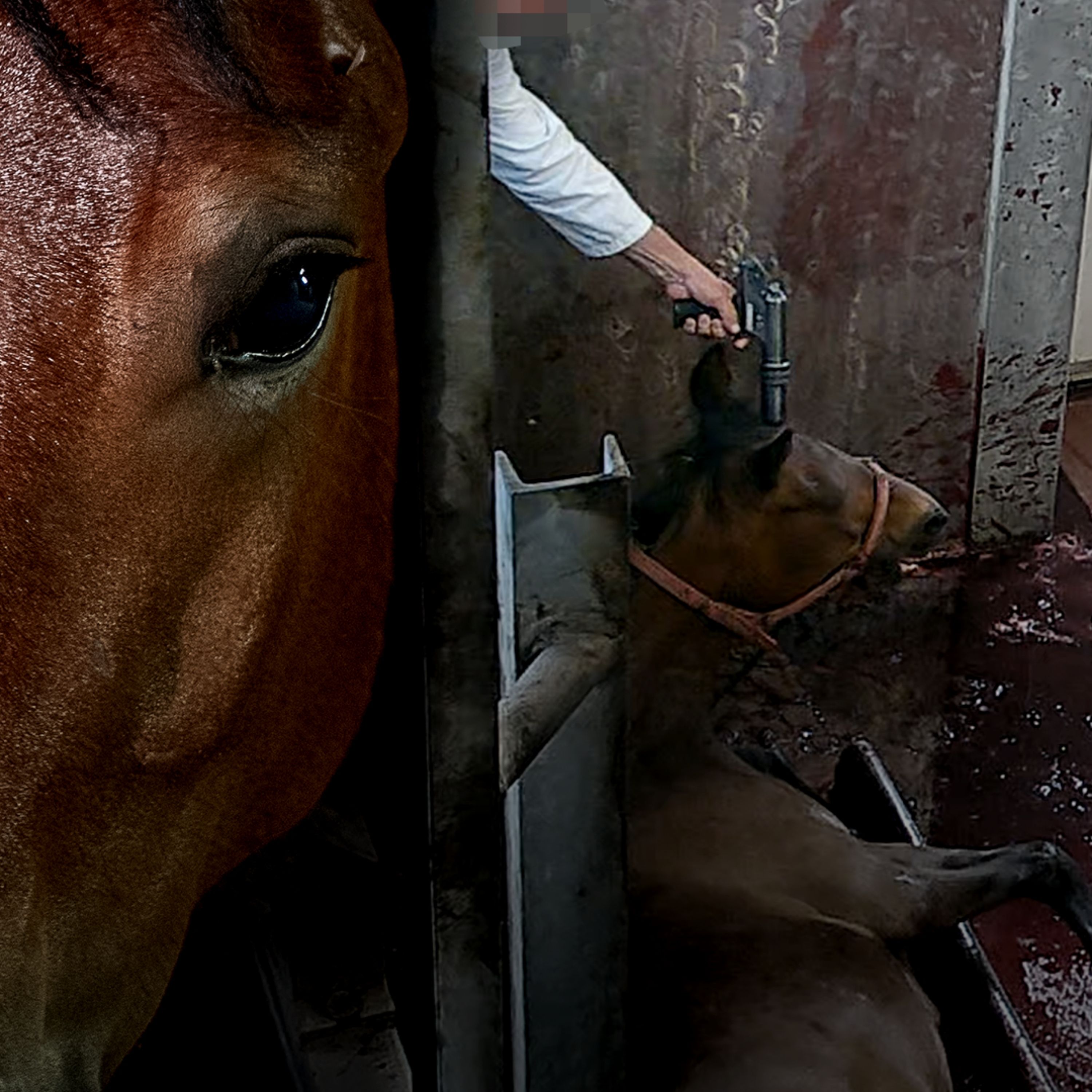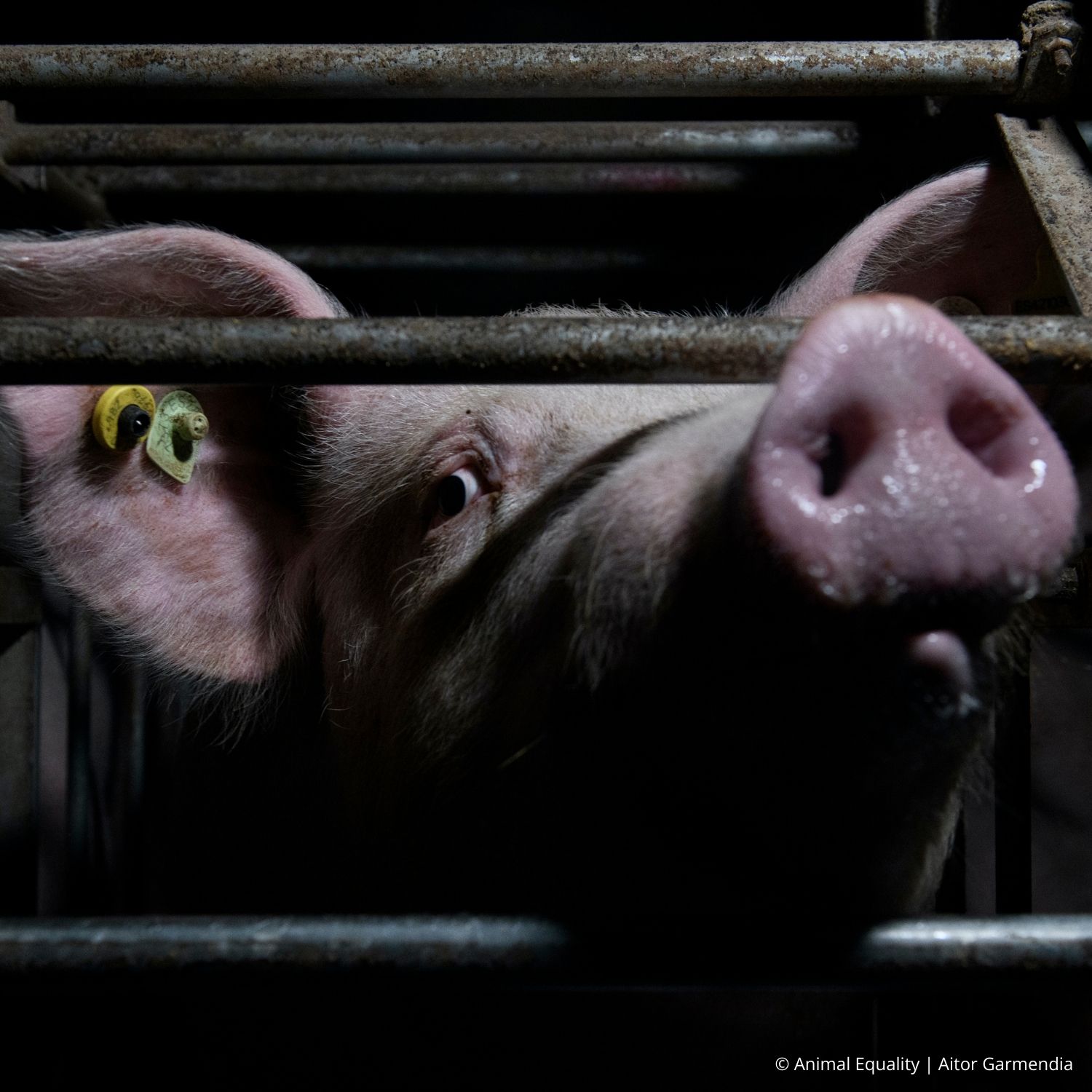Animal Equality Holds Urgent Public Hearing In São Paolo To Oppose Bill Which Threatens “Decades Of Regression” For Animals
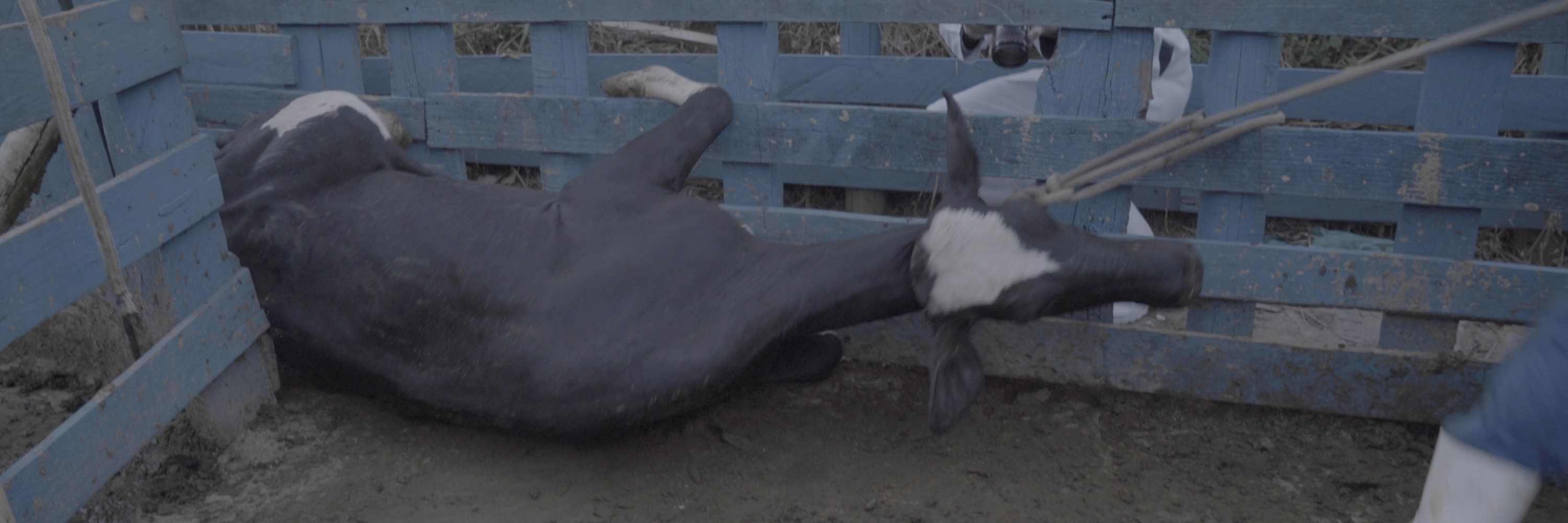
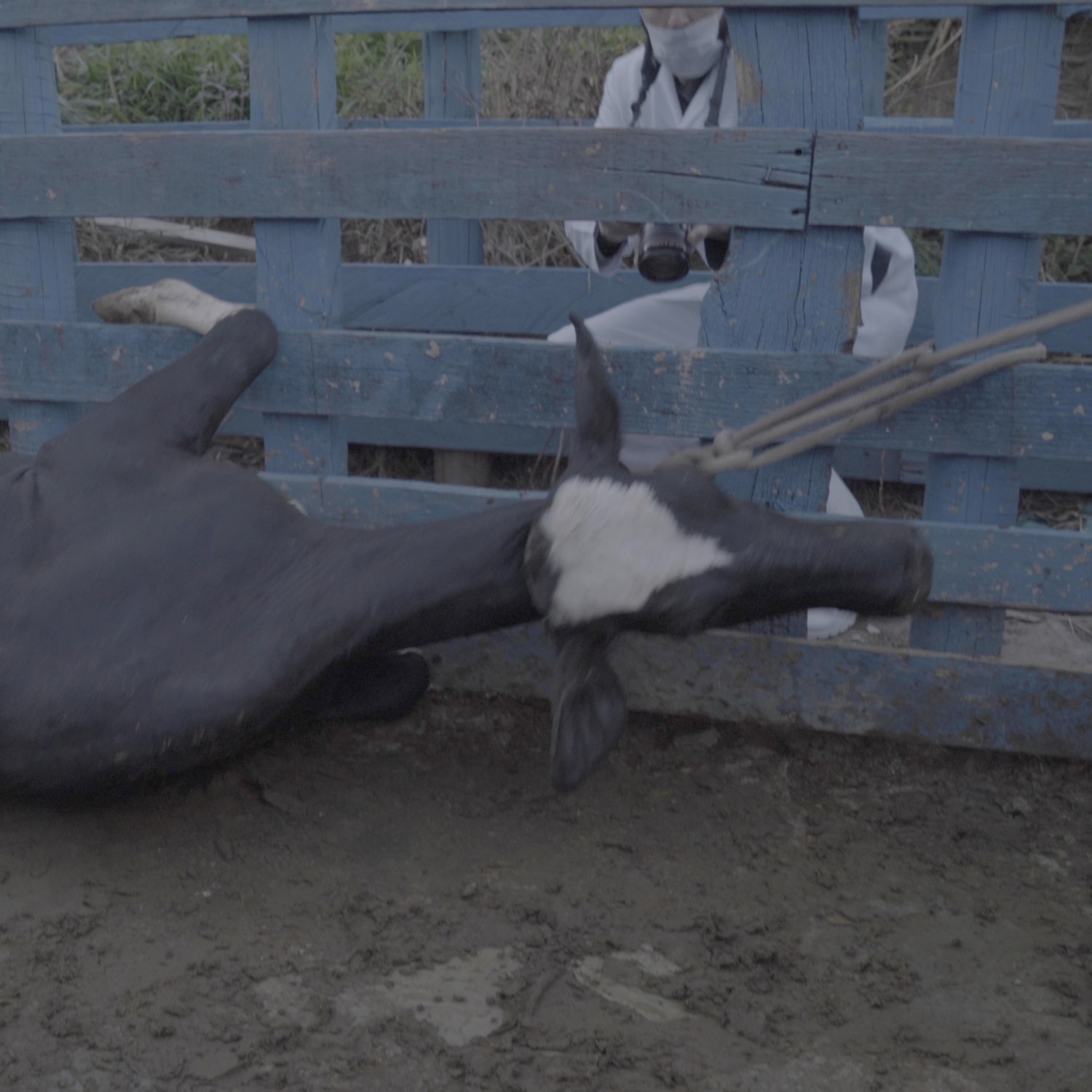
Animal Equality held a public hearing yesterday at the State Assembly in São Paolo to oppose a new bill which threatens to leave millions of animals vulnerable to illegal and deliberate abuse in slaughterhouses across the country.
The event is part of the anti-bill movement which Animal Equality and the Association of Federal Inspectors (ANFFA Sindical) are leading. The movement includes 35 organisations which represent different sectors of society: animal protection, public health, consumers rights, workers’ rights and environmental protection.
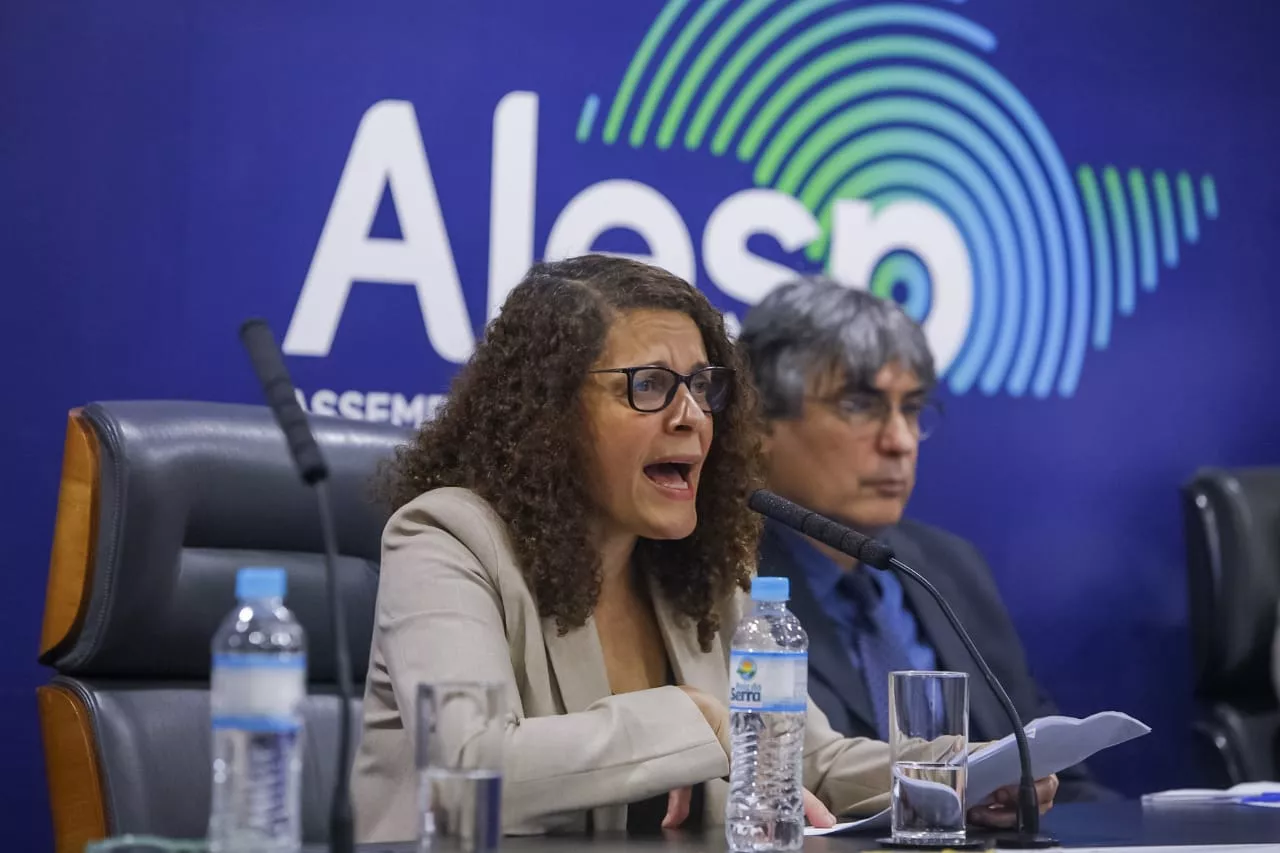
If voted through, the Bill – dubbed the ‘Self-Control’ Bill – will end Government inspections across the food industry including inside slaughterhouses. The Bill will, in effect, make the meat industry in Brazil responsible for monitoring itself.
It’s a dangerous proposal and Animal Equality has responded by coordinating a campaign fighting to stop the Bill. The latest step in the campaign was yesterday’s public hearing where representatives from organizations in animal protection, the environment, workers’ rights and public health came together.
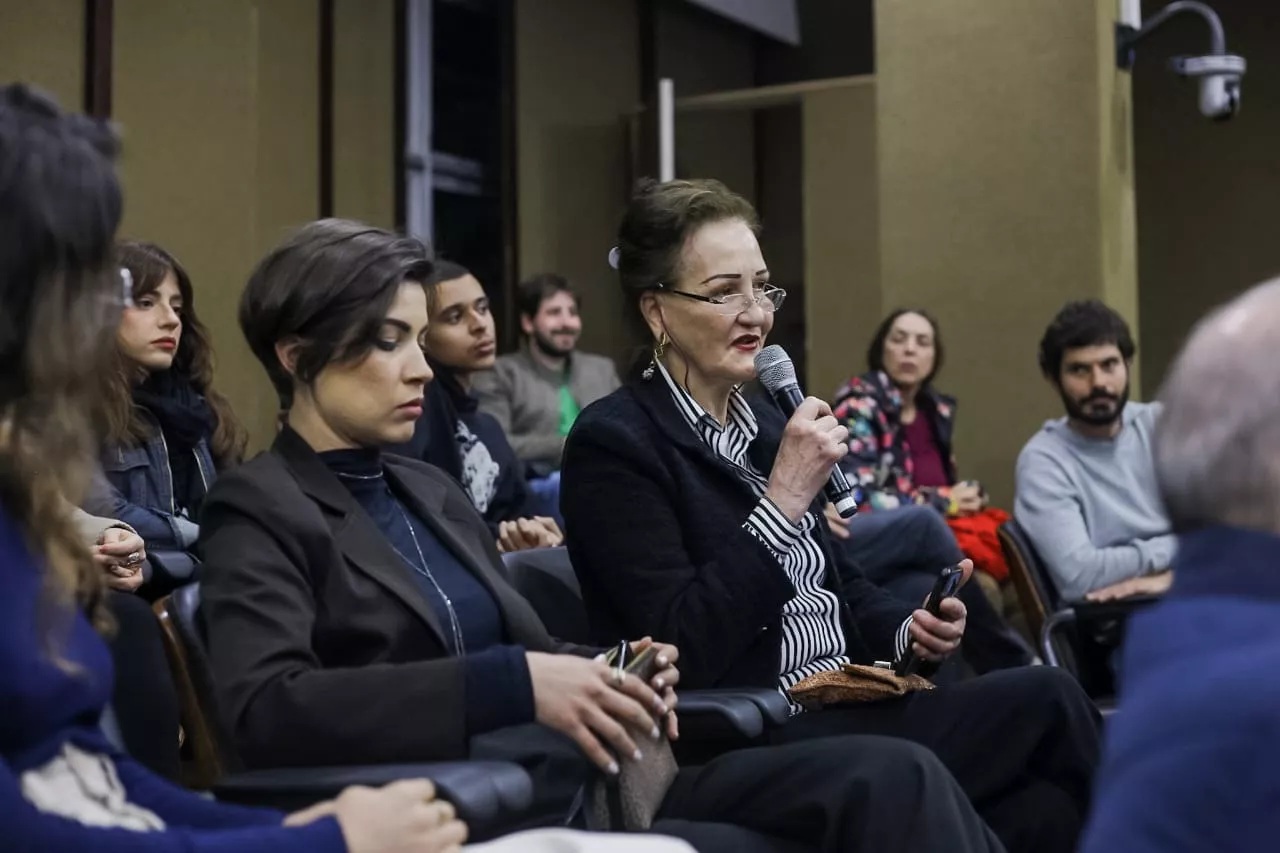
This is a critical moment for the future of farmed animals across Brazil and could have implications around the world too. Here’s everything you need to know about the Bill and what we can do to stop it.
What Is The Self-Control Bill And Why Has It Been Proposed?
The Self-Control Bill, if approved, will allow the food industry in Brazil to self-report on whether it is following animal welfare regulations. Under the new laws, farms and slaughterhouses will not receive on-site inspections.
The Bill has been proposed because it will allow companies in the food sector, including the meat industry, to save time and increase exports to other countries. This will allow them to make more money.
If the Government is no longer inspecting farms and slaughterhouses, there will also be fewer fines and prosecutions for breaking animal welfare regulations.
Cases of deliberate mistreatment and cruelty are frequent in slaughterhouses, and agricultural inspections play an important part in aiming to reduce such illegality. If this Bill is approved, it will mean decades of regression of what has been achieved so far in terms of animal welfare, which we still consider insufficient.
Carla Lettieri – Executive Director of Animal Equality Brazil
The Bill also allows for companies to submit an appeal if they are prosecuted for breaking the regulations. The appeal will go to a committee formed by Government and food industry representatives. This means there will be a strong chance of the prosecutions being overturned.
Finally, the Bill aims at saving money for the Government by not having to conduct inspections.
However, none of this comes for free. In fact, it comes at a heavy price which animals will have to pay.
What Does The Self-Control Bill Mean For Animals?
If passed, the Self-Control Bill will significantly increase the potential of more abuse, violence and neglect for animals in slaughterhouses.
Allowing the meat industry to carry out its own inspections is like allowing drivers to report if they broke the speed limit or not and whether they should pay a fine. With this Bill in place, if the meat industry wants to save money by cutting corners, there is little to stop them from doing it.
In June, Animal Equality released an undercover investigation into three Brazilian slaughterhouses. Our footage revealed extreme violence towards animals during slaughter. Our investigators filmed:
- Employees kicking cows in the face and twisting their tails;
- Improper stunning, meaning that cows were fully conscious at the moment of death;
- Cows having their skin and legs removed while they were still alive;
- Employees opening the cow’s body on the floor, creating a significant risk of contamination of their flesh – a potential cause of the spread of dangerous zoonotic diseases.
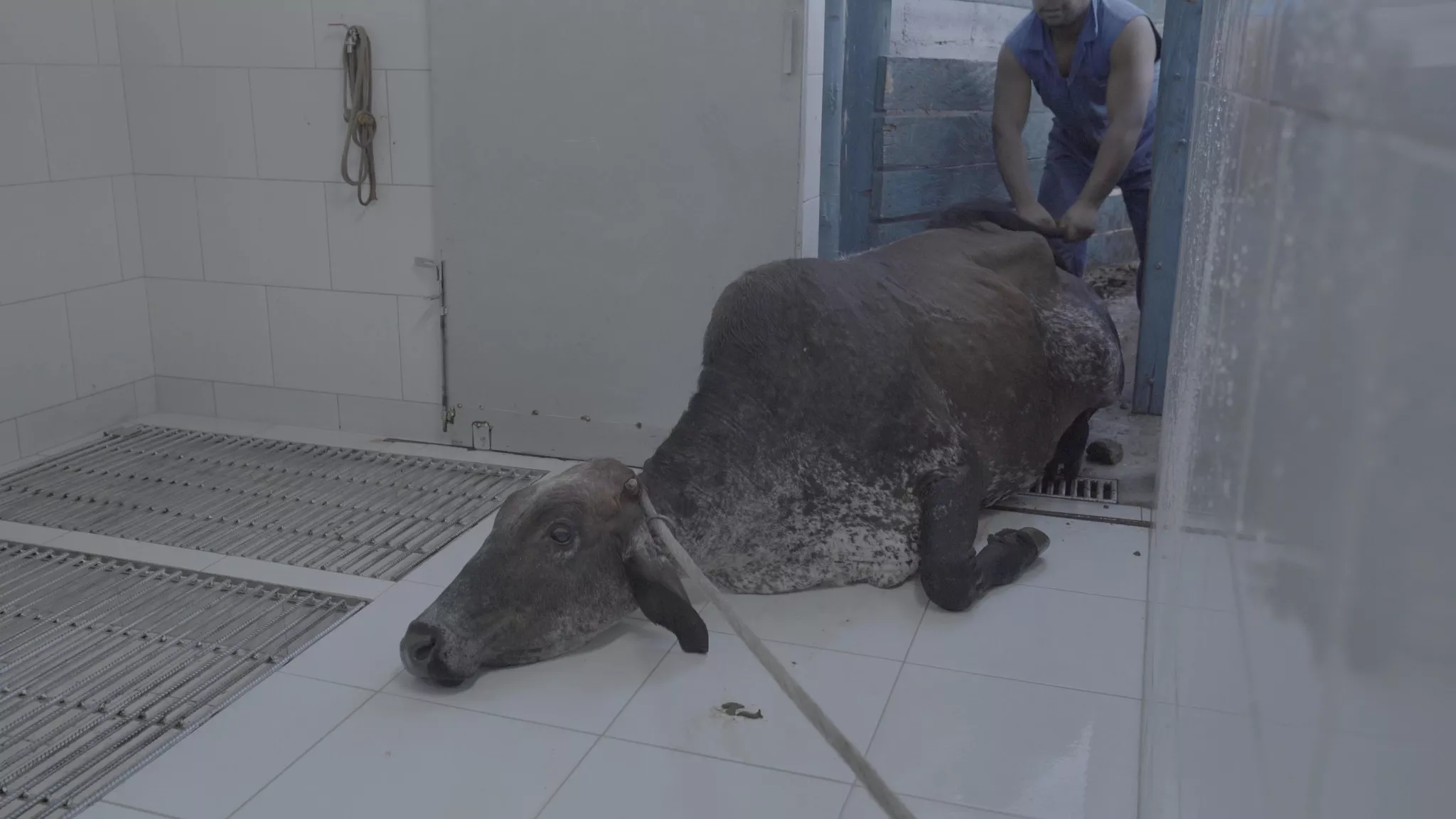
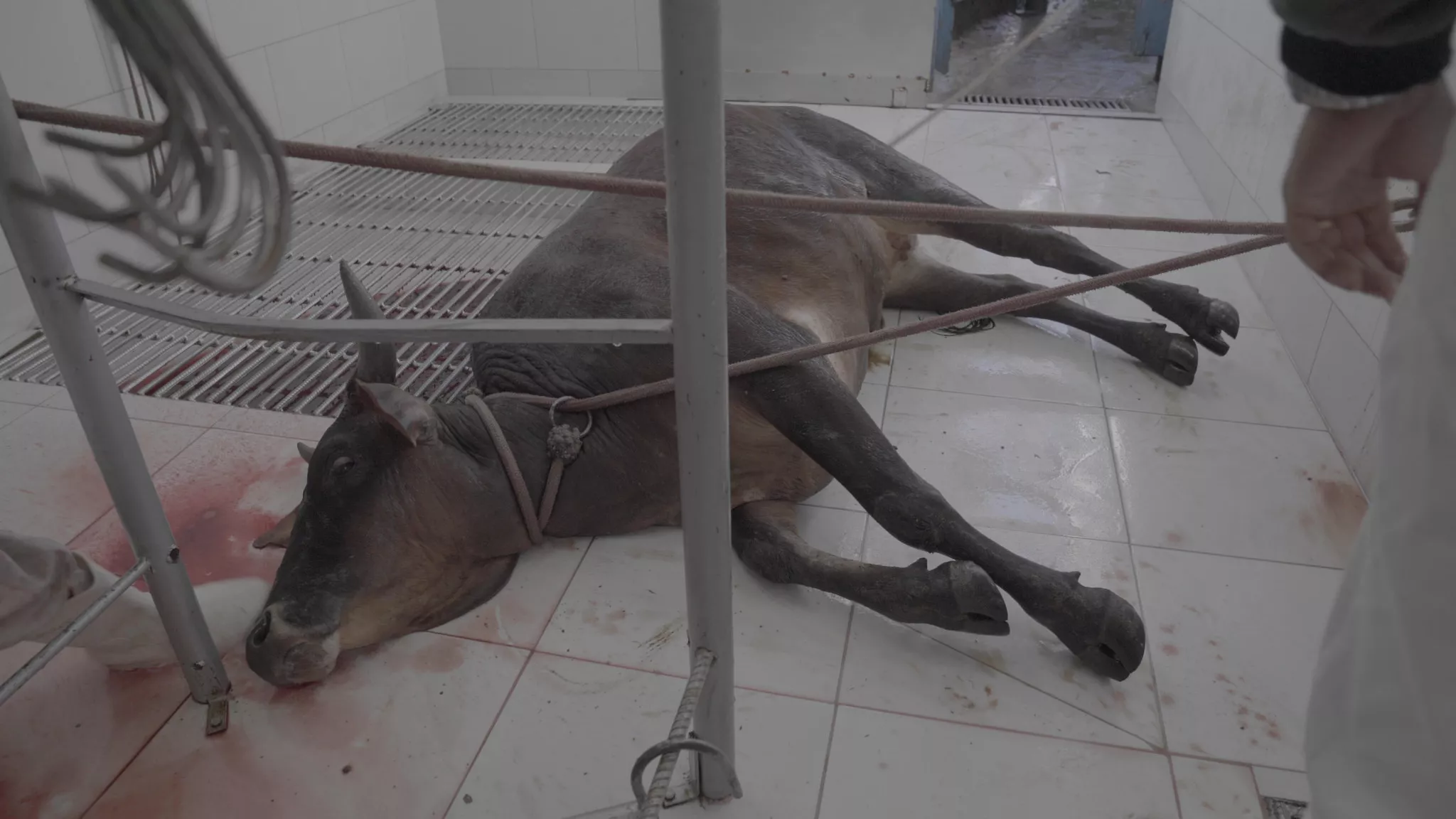
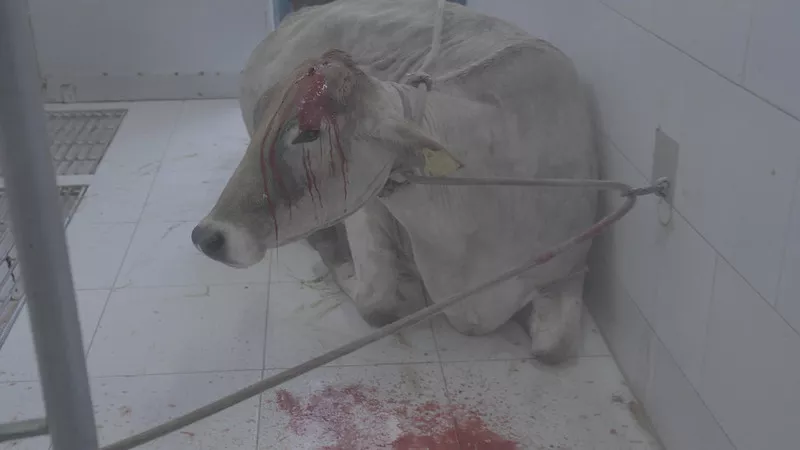
This is just the latest in a series of investigations by Animal Equality in Brazil showing that, even with inspections in place, animals face cruelty. With inspections removed, it will only get worse.
What Can We Do To Stop The Self-Control Bill?
The Bill was initially fast-tracked through the Brazilian Senate by senators who represent Brazil’s agriculture businesses. They did this to avoid further discussion of the Bill.
However, Animal Equality and 35 other organisations sent three letters to senators demanding that the Bill be debated in the Senate. Sixteen senators supported the call and a new debate will be held in an upcoming ‘plenary session’.
The Senators also requested that organisations opposing the bill be given the opportunity to present at the Senate on the impacts of the Bill on animals, human health and consumer rights.
The date of the plenary session is yet to be announced. In the meantime, we are campaigning for:
- A public hearing at the Senate, where organisations including Animal Equality are able to present directly to the Senate during the plenary session.
- A review of the Bill by the Environmental Commission. This has been supported by the President of the Environmental Commission.
The Senate will vote on these requests soon.
Meanwhile in the UK, Animal Equality has been working to increase international scrutiny on the Bill. Last week, The Ecologist reported on the Bill and the organisations working to resist it, including a quote from Animal Equality UK Executive Director, Abigail Penny.
“This issue is far closer to home than you might first think. The UK imports tens of thousands of tonnes of animal products from Brazil every year and with such a disturbing lack of oversight there’s no way of knowing how those animals lived and died. Ultimately, if governments won’t protect them, we as consumers can, by leaving animals off of our plates.”
Abigail Penny – Executive Director of Animal Equality UK
Self-Control: A Threat Around The World
This attempt to remove Government inspections from slaughterhouses is nothing new. In fact, this type of deregulation is happening in many countries around the world.
In the US, the Government has handed over slaughterhouse inspections from the Government’s Food Safety and Inspection Service to slaughterhouse employees.
As a result of the changes, slaughterhouses have increased production by killing animals faster. As these speeds have increased, so has animal cruelty.
In Spain, the Government has approved a new ruling that requires over 700 slaughterhouse facilities across Spain to install video surveillance cameras.
This should be a positive move, but slaughterhouse owners and employees will be the only ones with access to the camera footage.
And in the UK, many farm inspections have been left by the Government to assurance schemes which are funded by the meat industry. Animal Equality has found time and time again that animal welfare laws are not followed on farms across the country.
Animal Equality is currently campaigning around the world to hold Governments and the meat industry to account.
Our investigations are at the core of what we do. They are a vital tool to show the public the reality of factory farms and slaughterhouses and accelerate change for animals.
Making a donation today to support our investigators.

